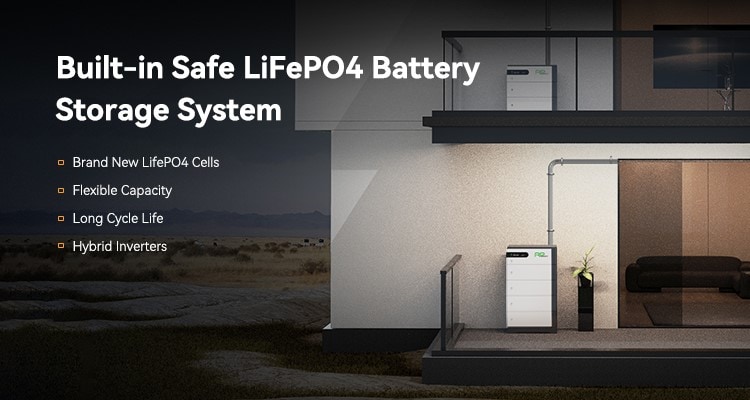
In the pursuit of sustainable and self-reliant living, “Off-Grid Power Systems for Homes” have emerged as a transformative solution. These systems not only provide independence from the traditional power grid but also epitomize the shift toward renewable energy sources. Off-grid power systems for homes, beacons of modern sustainability, are gaining popularity among homeowners aspiring to achieve energy autonomy. These systems leverage renewable energy sources, such as solar or wind power, to deliver a dependable and eco-friendly power supply.
Exploring Off-Grid Solar Battery System
Off-grid power systems for homes operate autonomously, detached from the national electricity grid. They typically consist of solar panels, battery storage, and a backup generator, working together to ensure a constant electricity supply. This makes them particularly suitable for remote or rural homes. In addition to providing energy independence, these systems often integrate innovative technologies to optimize energy usage, further enhancing their efficiency.
Unlocking the Benefits of Adopting Off-Grid Power Systems for Homes:
The transition to an off-grid power system comes with a myriad of advantages. Beyond reducing reliance on fossil fuels and lowering energy bills, these systems provide a sustainable power source. Their effectiveness is further pronounced in areas with unreliable power grids or high electricity costs. Homeowners can also enjoy increased energy resilience during natural disasters or power outages, ensuring uninterrupted power supply when it’s needed most.
Maximizing the Potential of Off-Grid Power Systems for Homes:
To fully realize the potential of an off grid solar battery system, it is crucial to consider factors like location, energy needs, and system size. A well-designed system not only meets the energy demands of a home but also contributes significantly to a greener planet. Incorporating energy-efficient appliances and adopting conscious energy consumption practices are integral aspects of maximizing the overall sustainability of an off-grid lifestyle.
Challenges and Solutions in Off-Grid Adoption:
While the benefits are substantial, challenges in adopting off-grid power systems for homes exist. These may include initial setup costs and technological complexities. However, ongoing advancements and government incentives are steadily mitigating these challenges, making off-grid solutions increasingly accessible.
The Future Landscape of Off-Grid Power:
As technology continues to advance, the future of off-grid power systems for homes looks promising. Innovations in energy storage, improved efficiency of solar panels, and integration with smart home technologies are paving the way for a more seamless and widespread adoption. Furthermore, ongoing research and development aim to make off-grid solutions more affordable and user-friendly, ensuring accessibility for a broader demographic.
Environmental Impact of Off-Grid Living:
One significant aspect of off-grid power systems for homes is their positive environmental impact. By reducing reliance on conventional energy sources, these systems contribute to lower carbon footprints, thereby supporting global efforts to combat climate change. The conscious decision to embrace off-grid living not only benefits individual homeowners but also plays a role in fostering a collective commitment to environmental stewardship.
Off-Grid Power Systems for Homes: A Glimpse into the Future
In conclusion, off-grid power systems represent a pivotal step toward achieving energy independence and sustainability. As we progress towards a more eco-conscious world, these systems offer a practical and effective solution for modern living.





